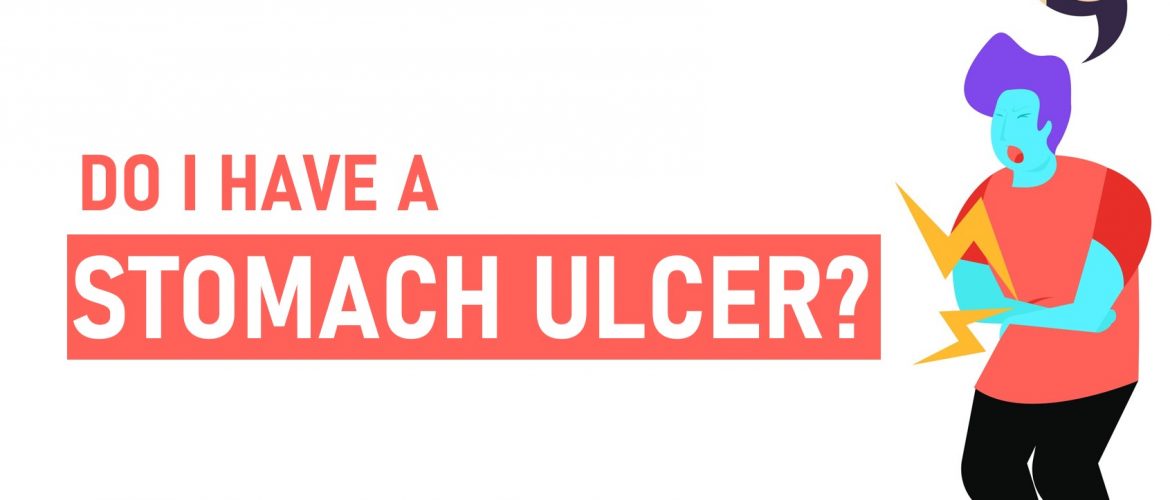Do you often have a dull or burning pain in your stomach that lasts anywhere from a few minutes to several hours? If yes, you might have a peptic (stomach) ulcer.
Stomach Ulcers – What it is exactly
Stomach ulcers are non-healing defects or sores in the lining of the stomach or the upper portion of your small intestine. A thick layer of mucus protects your stomach from digestive juices and if this layer is damaged which then enables digestive acids to eat away the tissue lining of your stomach causing ulcers.
Stomach ulcers are almost equally as common in men and women. There are two types of stomach ulcers:
- Gastric ulcers that occur on the inside of the stomach
- Duodenal ulcers that occur on the inside of the upper portion of your small intestine (duodenum)
Causes of Stomach Ulcers
Stomach ulcer disease can be caused by these factors, sometimes in combination:
- Too much stress
- Consumption of too much spicy food
- Infection caused by the bacterium Helicobacter pylori
- Long-term use of nonsteroidal anti-inflammatory drugs (NSAIDs)
- Rare condition known as Zollinger-Ellison syndrome can cause stomach and intestinal ulcers by increasing the body’s production of acid
Who could be at risk of an ulcer?
You may have an increased risk of stomach ulcers if you:
- Smoke. Smoking may increase the risk of ulcers in people who are infected with Helicobacter pylori
- Drink alcohol. Alcohol can irritate and erode the mucous lining of your stomach
- Have untreated stress
- Eat spicy foods
Symptoms – How Do I Know If I Have a Stomach Ulcer?
There are many symptoms associated with stomach ulcers and the severity of the symptoms depends on the severity of the ulcer. A burning sensation or pain in the middle of your abdomen (stomach pain) is the most common symptom. The pain is more intense when your stomach is empty.
Typical symptoms of stomach ulcers:
- dull or burning pain in the stomach
- sudden weight loss
- intolerance of fatty foods
- nausea or vomiting (sometimes bloody)
- bloating
- feeling easily full
- burping or acid reflux
- heartburn (burning sensation in the chest)
- pain that improves when you eat, drink or take antacids
- anemia (symptoms include fatigue, shortness of breath or pale skin)
- dark stools
Worried that you might have an ulcer? Don’t ignore an ulcer
Although stomach ulcers can be easily treated but it can become serious if left untreated. So if you are experiencing any of the above mentioned symptoms, even mildly, you may have an ulcer. Untreated ulcers can result in internal bleeding, infection and digestive tract obstruction.
In most cases ulcers can be treated with prescription medications, but in rare cases, surgery may be required. If your digestive tract is bothering you in any way, consult your nearby gastroenterologist without any wait.
FAQs on Stomach Ulcers
Is it true that stress leads to ulcers?
Actually, this is partially true.
How long do ulcers typically last?
If an ulcer is treatable with appropriate medications, then it may take about 2-3 months to heal.
When should I seek treatment for these symptoms?
So if you are experiencing any of the above mentioned symptoms, even mildly, you may have an ulcer and should seek treatment immediately.





No comments yet.